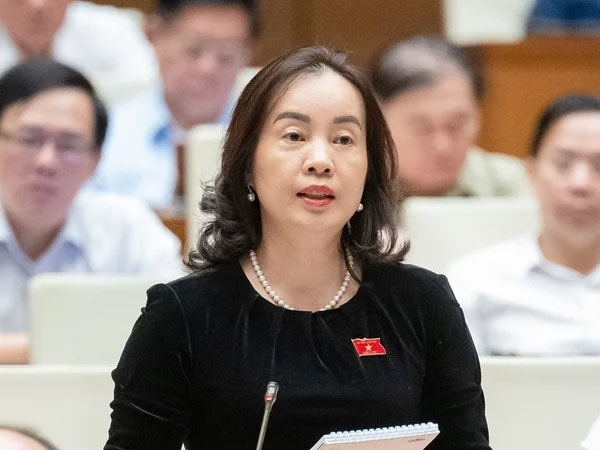 (VAN) Minister of Industry and Trade Nguyen Hong Dien addressed questions from delegates regarding the revision of Decree No. 107, which pertains to the export and trading of rice and was published in 2018.
(VAN) Minister of Industry and Trade Nguyen Hong Dien addressed questions from delegates regarding the revision of Decree No. 107, which pertains to the export and trading of rice and was published in 2018.
During the recent inquiry session at the National Assembly, delegate Nguyen Thi Kim Anh from Bac Ninh emphasized that Vietnam is primarily an agricultural nation and is among the top three largest exporters of rice globally.
Due to export limitations imposed by certain countries, the impact of El Nino on global climate, reduced cultivation areas, intense competition among domestic rice firms, and rising rice prices, farmers are experiencing decreased benefits.
The Decree No.107, which was issued by the Government in 2018 to regulate rice exportation and trading, showed certain deficiencies that do not align with practical circumstances.
Hence, the delegate has urged the Ministry of Industry and Trade to provide a clear outline of the suggested content for revision to the Government, along with a timeline for the issuance of the Decree to address obstacles and improve the value of Vietnamese rice products.
In response to delegate Nguyen Thi Kim Anh's query, Minister of Industry and Trade Nguyen Hong Dien affirmed that Decree 107, which governs rice export operations, has exhibited several deficiencies since its enactment. As a result, the Government has instructed the Ministry of Industry and Trade to make revisions to it. Presently, the Ministry is in the midst of completing the final version of the proposed modification to Decree 107.
The spirit of the modifications to Decree 107 revolves around four essential aspects:
Firstly, there is a need to revise and enhance the legislation regarding the reporting and statistical procedures, export agreements, and the enforcement of export agreements in a more stringent manner. This should include imposing severe fines to discourage traders from delaying or neglecting their reporting obligations.
Secondly, it is necessary to revise and enhance regulations in order to precisely delineate the post-audit timeframe for the Departments of Industry and Trade subsequent to the issuance of the rice export certificate. This regulation thus enhances the accountability of local administrations.
Thirdly, it is necessary to revise and enhance the specific coordination structures and procedures between the Ministry, sectors, localities, and relevant agencies in order to effectively manage rice exports and ensure adherence to principles and efficacy in policy execution.
Furthermore, to enhance efforts in expanding the market and promoting trade for Vietnamese rice. Therefore, a specialized program focused on enhancing trade activities and promoting the trade of rice and rice products would be implemented.
Additionally, in order to enhance the existing restrictions on export authorization and rice export entrustment, it is required that traders who provide and receive authorization possess certification and the legal authority to engage in rice export activities.
According to preliminary statistics from the General Department of Customs, in April 2024, Vietnam's rice exports decreased by 10.9% in volume, decreased by 12.6% in turnover compared to March 2024 and prices decreased by 2% to over 1 million tons, equivalent to 619.89 million USD, average price 618.6 USD per ton.
The Ministry of Agriculture and Rural Development (MARD) forecasts that the weather is not favorable and the supply is not abundant while many countries tend to increase imports for reserve purposes. In addition, some countries continue to ban and restrict exports along with many hot spots of conflict in the world continuing, causing the world rice market to continue to be vibrant in the near future.














© Copyright 2025 The SSResource Media.
All rights reserved.